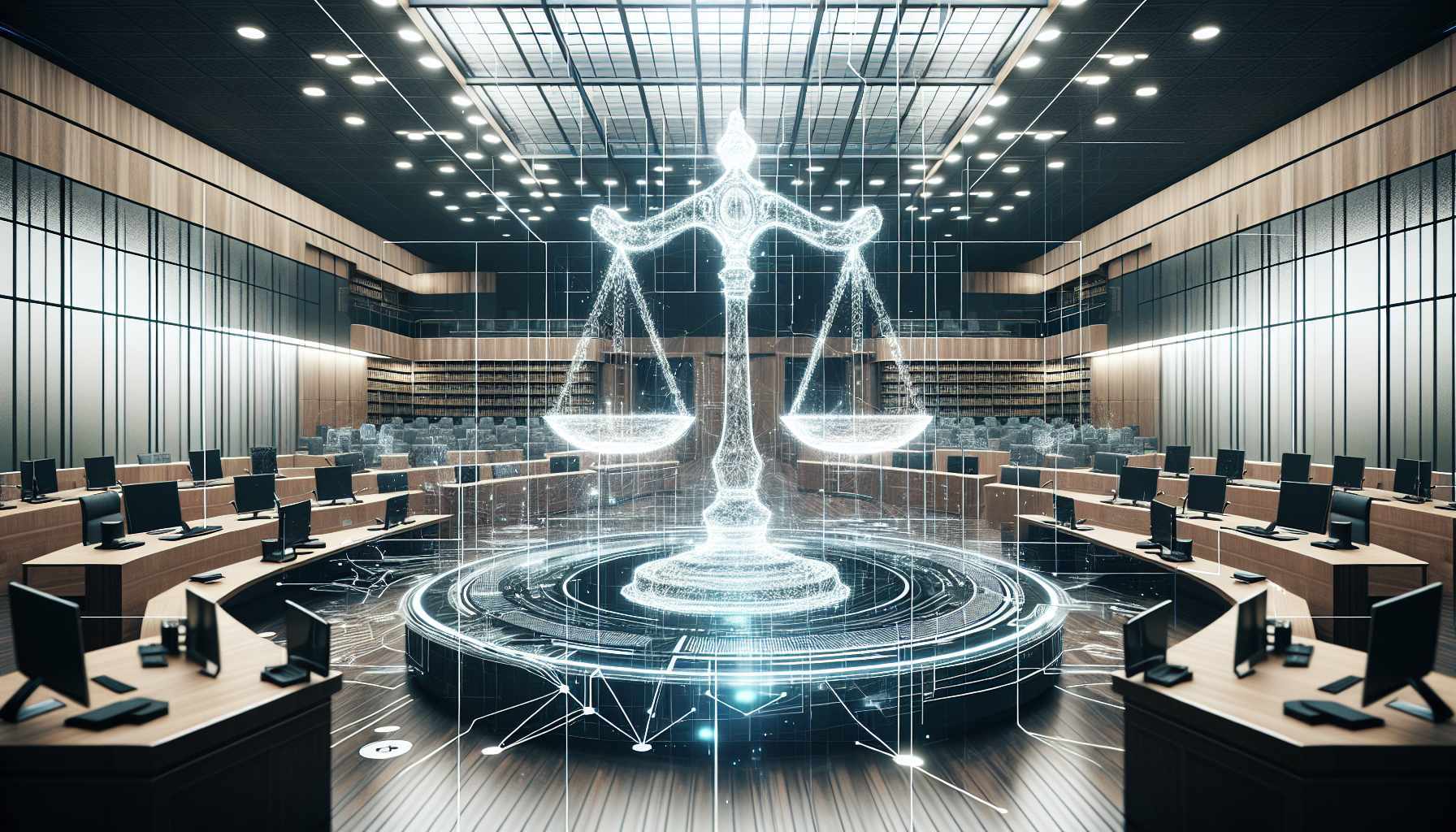
Welcoming a New Era in Legal Assistance
The landscape of legal assistance is experiencing a significant transformation with the advent of artificial intelligence (AI) and large language models (LLMs). These technologies are progressively becoming essential tools in modern legal work, offering unparalleled efficiency and accuracy. Among these advancements, ChatGPT stands out as a powerful AI tool with the potential to revolutionize various aspects of legal assistance, especially in complex and sensitive areas like LGBTQ+ family law.
LGBTQ+ family law, with its intricate legal scenarios and the necessity for high accuracy and sensitivity, benefits immensely from the precision and speed that AI can bring. ChatGPT, an AI developed by OpenAI, emerges as a relevant and impactful tool for paralegals navigating this challenging field.
Understanding the Complexities of LGBTQ+ Family Law
LGBTQ+ family law encompasses a broad range of issues that reflect the unique challenges faced by LGBTQ+ individuals and families. Key aspects include same-sex marriage, adoption, surrogacy, parental rights, and custody disputes. Each of these areas requires a nuanced understanding of evolving legal precedents and statutes.
Paralegals often encounter scenarios such as drafting documents for adoption petitions, managing divorce proceedings, handling custody disputes between same-sex parents, and navigating the legal complexities of assisted reproductive technology. Accuracy is paramount, given the high stakes involved, and sensitivity is critical to ensuring that clients feel understood and respected in their legal journeys.
In this demanding environment, the ability to leverage AI to ensure precision and empathy in legal documentation and communication can make a substantial difference. This is where ChatGPT’s capabilities can shine, providing significant support to paralegals.
Also read:
The Role of ChatGPT: Revolutionizing Paralegal Tasks
ChatGPT can assist with a wide array of paralegal tasks, revolutionizing daily workflows with its efficiency and reliability. From generating legal research to drafting documents, ChatGPT can streamline processes that traditionally require significant manual effort.
Benefits of using AI tools include enhanced productivity, reduced turnaround times for document preparation, and the availability of a reliable support system for repetitive or data-intensive tasks. Examples include:
- Researching case law and summarizing legal precedents
- Drafting preliminary versions of legal documents, such as petitions and briefs
- Generating client correspondence and updates
By taking over routine tasks, ChatGPT enables paralegals to focus on more complex and high-value aspects of their work.
Also read:
Crafting Effective Prompts for Research and Document Preparation
To maximize ChatGPT’s utility, it is crucial to craft effective prompts. A well-structured prompt not only guides the AI but also yields more accurate and useful outputs. Here are some techniques:
Structuring Prompts for Case Law Research
When researching case law, specificity is key. For example:
Example Prompt: “Summarize the key legal arguments and outcomes of Obergefell v. Hodges and its impact on same-sex marriage rights.”
Summarizing Legal Documents
For document summarization, clear instructions yield concise results:
Example Prompt: “Provide a summary of this 20-page custody agreement, focusing on the main points of custody, visitation rights, and child support.”
Generating Drafts of Legal Memos and Briefs
Drafting legal memos requires a detailed context:
Example Prompt: “Draft a brief on the impact of recent changes in surrogacy laws on same-sex couples in New York, including references to relevant statutes.”
These techniques ensure high-quality outputs that can significantly expedite the research and drafting processes, allowing paralegals to work more efficiently and effectively.
Also read:
Enhancing Client Communication and Support
Effective client communication is a cornerstone of successful legal practice, particularly in sensitive areas like LGBTQ+ family law. ChatGPT can assist by drafting precise and empathetic client emails and correspondence.
For drafting client emails, prompts can be tailored for both clarity and sensitivity:
Example Prompt: “Write a compassionate email to a client explaining the next steps in their adoption process, outlining what documents they need to submit.”
ChatGPT can also help create informative newsletters or case updates to keep clients informed:
Example Prompt: “Draft a newsletter update summarizing recent changes in parental rights legislation affecting LGBTQ+ families.”
These tools ensure that communication is not only efficient but also maintains a high standard of client care and professionalism.
Also read:
Streamlining Administrative Tasks with ChatGPT
Administrative tasks are integral to the smooth operation of any legal practice. ChatGPT can automate and streamline these processes, allowing paralegals to focus on more substantive work.
For scheduling and calendar management, AI can track deadlines and set reminders:
Example Prompt: “Schedule a follow-up appointment with the client next week and set a reminder for document submission two days prior.”
Efficient client intake and follow-ups can be managed seamlessly:
Example Prompt: “Draft an intake form for new clients interested in surrogacy law, asking for relevant background information.”
Organizing and maintaining client files can also be automated to ensure easy access and retrieval of important documents.
Also read:
Ensuring Confidentiality and Ethical Use of AI Tools
Maintaining client confidentiality is paramount. Best practices include using secure platforms, anonymizing data where possible, and adhering to legal standards for privacy and data protection.
Ethical considerations must also be a priority. Continuous oversight and validation of AI outputs ensure that the use of such tools aligns with professional standards and client expectations. Regular training and updates on AI capabilities are essential to keep pace with technological advancements.
Also read:
Future Horizons: Evolving with AI in Legal Practice
The integration of AI in legal practice is just beginning. Future advancements promise even greater accuracy, efficiency, and adaptability, fostering a new era of legal assistance.
For legal professionals, continuous learning and adaptation are key. Embracing AI tools like ChatGPT can enhance daily workflows, improve client outcomes, and ensure that legal practices remain at the forefront of innovation.
Ultimately, the thoughtful integration of AI into legal workflows represents a significant step forward, offering promising horizons for the future of legal assistance.


